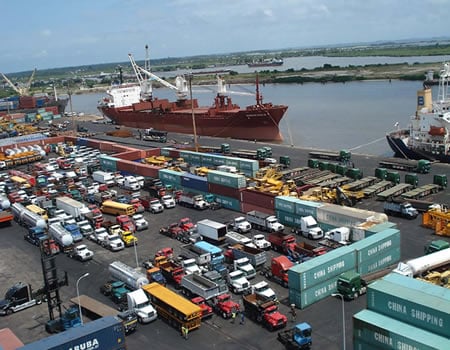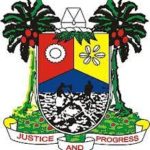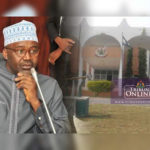A maritime media outfit, ShipsandPorts have attributed the latest sanctions placed on Nigeria’s ports by the United States Coast Guard (USCG) concerning compliance level with the International Ships and Ports Security (ISPS) Code to non-challant attitude of leading security agencies like the Nigerian Maritime Administration and Safety Agency (NIMASA) and the Nigerian Ports Authority (NPA) when armed robbers unleashed terror on ships at berths in various port terminals in Nigeria.
Disclosing this in a writeup on its website, the group stated that, “The USCG sanctions on Nigeria must have come as a rude shock to the relevant Nigerian authorities. They are shocked that Nigeria is listed among 19 countries that have performed poorly in ISPS Code Implementation. Other African countries on the list include: Côte d’Ivoire, Equatorial Guinea, The Gambia, Guinea-Bissau, Liberia, Libya, Madagascar and Seychelles.
“In February 2018, a delegation from the USCG led by Lt. Commander Jacob Hopper of the International Port Security (IPS) Liaison for USCG in West and Central Africa and Europe had visited Nigeria. For two days, the delegation toured some of the port terminals in Lagos, and noted that there had been a lot of improvement in the nation’s ports security architecture.
“Lt. John Hopper had commended NIMASA, the Designated Authority (DA) for the implementation of the ISPS Code in Nigeria, for the feat it had achieved in the implementation of the Code.
However, after all these commendations and admonitions, the axe of sanctions still fell on Nigeria along with 18 other countries. Nigerians, surely, would like to ask, what went wrong?
“The answer to this question is not far-fetched. Barely three months after the visit of the US Coast Guard, there was a spate of armed robbery attacks on ships at berths in various port terminals across the country. In a space of three months, more than nine ships were attacked at their anchorages, and the crew robbed. NIMASA, the arrowhead of ISPS Code implementation in Nigeria and the Nigerian Ports Authority (NPA) simply watched as these attacks took place one after the other, without doing anything meaningful to arrest the ugly situation. Since then, these vicious attacks have not stopped, but have only reduced in frequency.
“To the government authorities, the attacks on ships at anchorages were just part of the general insecurity of the nation’s maritime domain to which ‘something is being done” or which “we are on top of”, but to the US Coast Guard, it exposed a serious neglect of the vital industry.
ALSO READ: More trouble for Onnoghen as EFCC drafts charge for fresh trial
“By including Nigeria in the list of nation’s with poor ISPS Code implementation record, the USCG is eloquently proclaiming that what they saw when they visited Nigeria last year were mere illusions of security.
“This humiliation of Nigeria in the comity of maritime nations is one too many. Certainly, it will not advance Nigeria’s current efforts to be re-elected into Category C of the IMO Executive Council. One hopes that Nigerian authorities would learn the lesson that shipping is an international activity and not a Nigerian affair. That being the case, it should be conducted always in line with world’s best practices and recommendations.”
It will be recalled that the United States Coast Guard (USCG) recently slammed sanctions on Nigeria for port security lapses. The sanctions, which the US agency said would take effect from April 2019, impose conditions of entry on ships that have visited some port terminals in Nigeria in their last five port calls. This measure, the US agency said, was intended to protect the United States from vessels arriving from countries that have been found to have deficient anti-terrorism port measures in place.
The ISPS Code is an amendment to the Safety of Life at Sea (SOLAS) Convention (1974/1988) on minimum security arrangements for ships and ports facilities.
WATCH TOP VIDEOS FROM NIGERIAN TRIBUNE TV
- Let’s Talk About SELF-AWARENESS
- Is Your Confidence Mistaken for Pride? Let’s talk about it
- Is Etiquette About Perfection…Or Just Not Being Rude?
- Top Psychologist Reveal 3 Signs You’re Struggling With Imposter Syndrome
- Do You Pick Up Work-Related Calls at Midnight or Never? Let’s Talk About Boundaries







